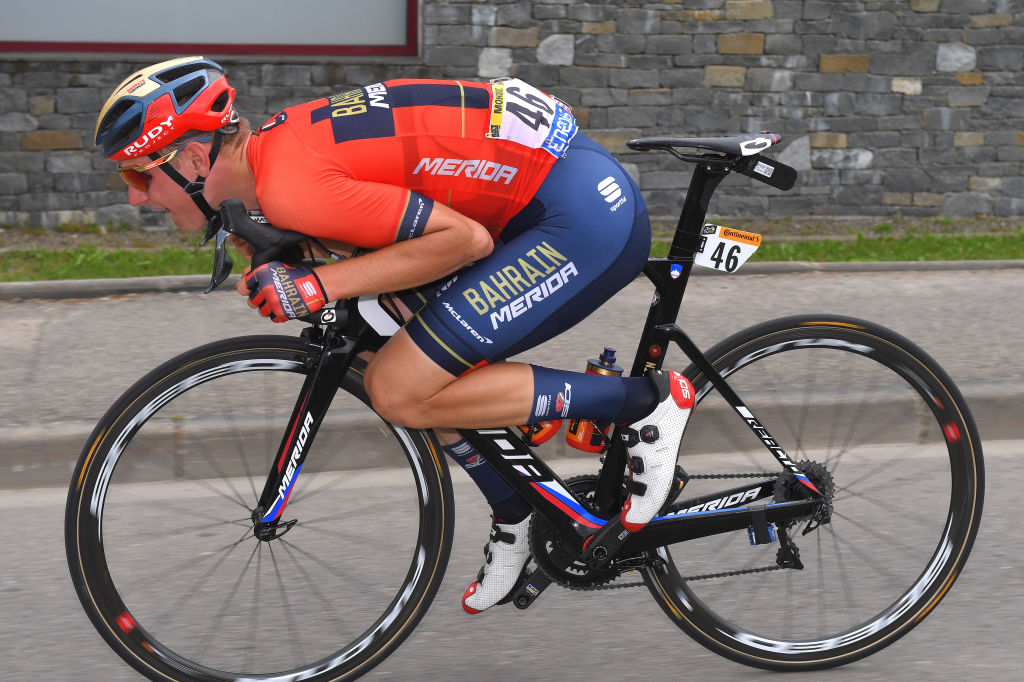UCI aims to stamp out 'super tuck' descending as part of broad safety measures
Appointment of Safety Managers, incident monitoring and risk assessments first in long list of changes

The UCI announced on Thursday that the Pro Cycling Council approved a wide range of measures to improve rider safety, an initiative that gained steam after the horrific crash of Fabio Jakobsen in the 2020 Tour de Pologne.
The measures were approved during a virtual meeting of the UCI Management Committee from February 2-3, and will first apply to the UCI WorldTour and UCI Women's WorldTour events, then will be able to be applied progressively to all events on the UCI International Road Calendar. The changes will target race organisers, convoy drivers and helicopter pilots, as well as the riders themselves.
Most notably in the latter category, the UCI Management Committee opted to apply the current rules against 'dangerous conduct of riders' to the 'super tuck' descending position. The 'super tuck', where riders hunch down with their chest on the bars and sit on the top tube to gain a perceived but possibly not factual aerodynamic advantage on descents, has become so common that the eSports platform Zwift incorporated the position in its animation of avatars.
Chris Froome used the tuck to win stage 8 of the 2016 Tour de France in Bagnères-de-Luchon, inspiring Belgian researchers in aerodynamics to debunk its effectiveness. Riders will also be prohibited from throwing bottles onto the road or within the peloton.
Riders will get warnings from the UCI Commissaires with immediate effect, 'to ensure everyone knows and understands the new provisions and their consequences', but from April 1, 2021, they will receive penalties.
Of more importance, road-side barriers for the finishes of races will get standard regulations in 2022 after the UCI draws them up in consultation with stakeholders. Before then, the UCI will impose rules for weighting and positioning of barricades to avoid the type of gaps between sections that compounded the seriousness of Jakobsen's injuries.
Riders' demands to have safer courses were partially met by a requirement for races to appoint and train an 'Event Safety Manager', while the UCI has nominated Tour de Romandie organiser and Director General of the Association Internationale des Organisateurs de Courses Cyclistes (AIOCC) Richard Chassot as the federation's Safety Manager. To avoid conflict of interest, Chassot resigned his role in the AIOCC and will not intervene as Safety Manager in any event he organises.
Get The Leadout Newsletter
The latest race content, interviews, features, reviews and expert buying guides, direct to your inbox!
The UCI brought in external providers to create a database to track race incidents over the past five years of WorldTour racing to allow for 'more effective targeting of actions', and to develop a tool for race organisers to help evaluate risks in their proposed route several weeks before the start of the event.
More long term, the UCI plans to have 'better supervision' of team equipment such as disc brakes and bottle cages. An errant bottle that was jarred out of a cage during the 2020 Giro d'Italia caused Geraint Thomas to crash and sustain a fractured pelvis.
The federation also plans to enhance and modernise 'the specifications concerning obstacle protection elements used along the course as well as the harmonisation of signalisation used' and create a more detailed protocol dealing with the neutralisation of events.
UCI President David Lappartient said, "The safety and well-being of athletes are at the heart of the UCI's preoccupations. I am pleased that several decisions have been taken to improve these, notably a series of unprecedented measures to reinforce safety during road races and support for the CPA and CPA Women, organisations representing men and women riders, in this period that is difficult for all our sport's members.
"After 2020, a year in which the UCI invested a great deal to successfully ensure the staging of a maximum of major events despite the Covid-19 pandemic, it will continue to follow the evolution of the situation with all its stakeholders and adapt its measures, notably its health protocols, to ensure the season 2021 runs as smoothly as possible."

Laura Weislo has been with Cyclingnews since 2006 after making a switch from a career in science. As Managing Editor, she coordinates coverage for North American events and global news. As former elite-level road racer who dabbled in cyclo-cross and track, Laura has a passion for all three disciplines. When not working she likes to go camping and explore lesser traveled roads, paths and gravel tracks. Laura specialises in covering doping, anti-doping, UCI governance and performing data analysis.